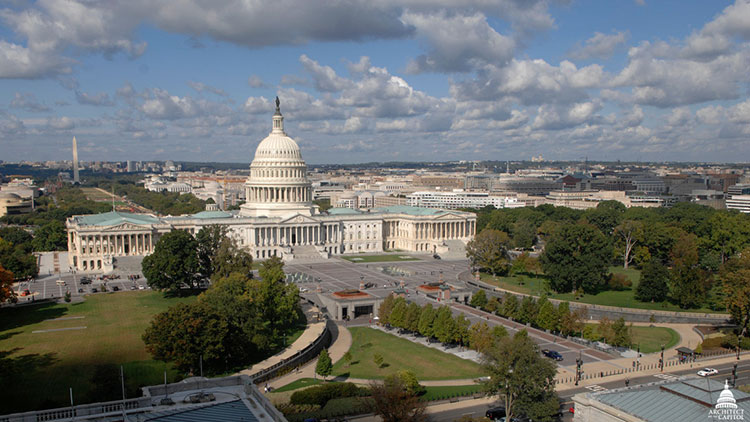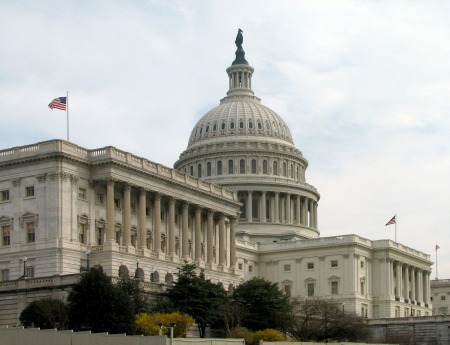ITIF: Compromise Net Neutrality Legislation Is in Reach

The smarter way to stay on top of broadcasting and cable industry. Sign up below
You are now subscribed
Your newsletter sign-up was successful
The Information Technology & Innovation Foundation has offered up what it suggests is a path to compromise, win-win, network neutrality legislation. That path has been a long and winding road leading so far to roadblocks over issues like paid prioritization and the FCC's authority to regulate broadband
The ITIF proposal comes as Senate Democrats (and at least one Republican) prepare to vote to block the FCC's net reg rollback.
May 9 is when a discharge petition is expected to be filed to force a vote on the Congressional Review Act (CRA) resolution to nullify the FCC's Dec. 14 vote eliminating the rules against blocking, throttling and paid prioritization online.\

That effort is not likely to succeed given that it is still shy one vote in the Senate, likely many in the House, and faces a President on the record in favor of the FCC's net reg rule rollback.
Related: Pai Issues Net Neutrality Facts
But ITIF--whose honorary chairs include a couple of House Dems-- says Congress "can and should act to end this 'long national nightmare' that is the net neutrality war. There is ample room for a bipartisan compromise on net neutrality that would not only lock in noncontroversial ex ante protections and finally end the absurd back-and-forth on Federal Communications Commission (FCC) jurisdiction, but also secure funding to help close the digital divide with programs that promote digital literacy and broadband adoption—while also accelerating deployment in rural areas."
It sounds too good to be true, or at least politically achievable, but ITIF suggests there is "ample room for bipartisan compromise."
ITIF's proposal tracks pretty closely with ISP's support of rules against blocking and throttling. It also allows for pro-consumer paid prioritization, as ISPs also support, but with perhaps some specific rules against anti-competitive paid prioritization--say a ban on exclusive deals or offering similar terms to all customers. Depending on the language, that could move the paid prioritization needle.
The proposed legislation solution has five basic parts, though ITIF is sweetening the pot for net neutarlity activists by suggesting that it could be a vehicle for other issues near and dear to them, including "prison-phone rate reform, E-Rate-funded middle-mile access reform, solidifying and modernizing the Lifeline program."
The five parts of the proposal are:
1. "Clarify that broadband Internet access service is not a “telecommunications service” under Title II of the Communications Act," but also add a new section to the Communications Act to "cover broadband with rules that are properly tailored to the dynamic, competition-driven communications network that is the Internet—not to old-fashioned telephone service."
2. "Put widely agreed upon open Internet protections, including no-blocking, no throttling, and transparency requirements, on firm legal ground."
3. Allow pro-competitive traffic differentiation [paid prioritization] for applications that require it, while preventing anticompetitive abuses of prioritization." That means neither a flat ban nor blanket permission."Legislation should put some restrictions on paid prioritization to limit the potential for abuse," ITIF says, "such as a simple ban on exclusive dealing or a requirement to offer similar terms to all customers.
4. "Give the FCC reasonable, but bounded, jurisdiction to enforce open Internet rules. Specifically, a new broadband title of the Communications Act should find a compromise regarding the scope of the FCC’s jurisdiction, but focus narrowly on open Internet rules and bridging the digital divide—leaving a broader update to the Communications Act for another day." One of the issues of debate on network neutrality is whether the FCC's congressional mandate to insure advanced telecommunications is being deployed to all Americans on a reasonably and timely basis" is a grant of general authority to regulate.
5. "Expand the scope and funding of existing digital-literacy and broadband-adoption programs. Legislation should expand support for existing adoption programs, such as NTIA’s Broadband Adoption Toolkit, the ConnectHome initiative, and expansion of the FCC’s Lifeline program, while also establishing a national clearinghouse to support local digital-literacy and adoption initiatives."
Most participants in that net neutrality war have said they would prefer a legislative solution to the regulatory ping pong of rules and rule reversals depending on which party holds the FCC chairmanship. But compromise has eluded legislators on this issue as with so many others in a bitterly divided Nation's Capital.
The smarter way to stay on top of broadcasting and cable industry. Sign up below
Contributing editor John Eggerton has been an editor and/or writer on media regulation, legislation and policy for over four decades, including covering the FCC, FTC, Congress, the major media trade associations, and the federal courts. In addition to Multichannel News and Broadcasting + Cable, his work has appeared in Radio World, TV Technology, TV Fax, This Week in Consumer Electronics, Variety and the Encyclopedia Britannica.

